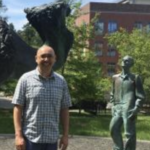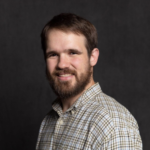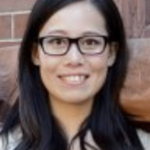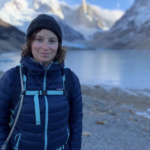MEFA Launch: Introduction to Macrosystems Ecology
Thanks to everyone who joined us on March 3, 2023, for the virtual MEFA Launch!
If you weren’t able to join us, then we hope you’ll view the recording (below) of our virtual MEFA Launch Event to learn more about macrosystems ecology and how to get involved in collaborative macrosystems ecology research!
 On March 3, 2023, we held a 90-minute opening event to launch our new NSF-funded Research Coordination Network, Macrosystems Ecology For All (MEFA). In the recording below, you will hear four macrosystems ecologists share their projects and stories, and you will be encouraged to think about what it might mean for you to shift towards or build your existing macrosystems research. You will learn all about the MEFA RCN and our upcoming events!
On March 3, 2023, we held a 90-minute opening event to launch our new NSF-funded Research Coordination Network, Macrosystems Ecology For All (MEFA). In the recording below, you will hear four macrosystems ecologists share their projects and stories, and you will be encouraged to think about what it might mean for you to shift towards or build your existing macrosystems research. You will learn all about the MEFA RCN and our upcoming events!
MEFA Launch Event Transcript (recording below)
Agenda
- Introduction to the Macrosystems Ecology for All Research Coordination Network (10 minutes)
- Guest Speaker Presentations (40 minutes)
- Breakout Discussions on Shifting Towards Macrosystems Research (20 minutes)
- Information on Upcoming MEFA Events & Conclude (10 minutes)
Guest Speakers

Dr. Robbie Burger (he/him), University of Kentucky
Dr. Burger is an interdisciplinary evolutionary and macroecologist who uses theoretical models to motivate empirical tests in the field and/or with big data. His collaborative research in human macroecology has resulted in core macroecological principles that guide the use and distribution of resources and reveal challenges to sustainability.

Dr. Naupaka Zimmerman (he/him), University of San Francisco
Dr. Zimmerman is a microbial ecologist who is collaboratively studying soil respiration in partnership with NEON. Concurrently, they are leading a new Faculty Mentoring Cohort through BioQUEST & QUBES.

Dr. Ying Sun, Cornell University
Dr. Sun’s research centers on the roles that terrestrial vegetation play in climate-biosphere-hydrosphere interactions. She includes the following approaches in her work: leaf/plant-scale measurements, global climate modeling, remote sensing observations, big-data analysis and AI. Thus, her research is interdisciplinary and multidisciplinary and requires integrating multi-scale processes and multi-platform remote sensing observations in numerical modeling frameworks.

Dr. Jennifer Cotton, California State University Northridge
Dr. Cotton uses stable isotopes and other geochemical proxies to study how the terrestrial climate and environment has changed through many different timescales. A current collaborative project focuses on how small mammals can signal changes in urbanization, hydrology, and deforestation through time.
